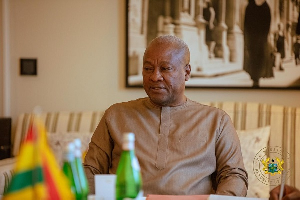The 1992 Constitution is supposed to be the supreme law of the land. At least so we have been taught to believe. That is until you carefully read the Anti-LGBT+ Bill.
The Constitution under Article 21(1)(a) provides for “freedom of speech and expression”, while Article 21(1)(b) provides for “freedom of thought, conscience and belief, which shall include academic freedom”.
As a result of these provisions, citizens have the freedom to critique even the Constitution itself and to request for certain provisions therein to be amended.
And the Constitution Review Commission did exactly that, creating an opportunity for citizens to propose amendments to the 1992 Constitution.
So citizens have the freedom to think and analyse, conduct academic research and issue publications, and to speak up against certain provisions of the supreme law of the land, the Constitution.
But, if you dare conduct scientific research on LGBT+ and publish your findings or express your findings in a speech or in a roundtable conference or media discussion, you will be jailed for between 5 and 10 years. You can ask for amendments to the Constitution, but you dare not ask for any changes to the new Holy Ghana Bible (HGB).
If you do, and your speech or academic publication is deemed to be aimed at changing public opinion about LGBT+ identities and activities (both of which are prohibited under the HGB), you will be jailed for between 5 and 10 years.
Section 10(2)(b) of the Anti-LGBT+ Bill provides as follows:
“A person who engages in participates in, promotes or supports an act aimed at changing public opinion towards an act prohibited under this Act commits an offence and is liable on summary conviction to a term of imprisonment of not less than five years and not more than ten years.”
With this provision, our “freedom of speech and expression” is gone; our “freedom of thought, conscience and belief, which shall include academic freedom”, is permanently taken away, till thy kingdom come.
Don’t tell me this doesn’t matter because you support the Anti-LGBT+ Bill. In the future, we may have another person as President and a different set of people as Members of Parliament. That President could determine, together with his/her majority MPs, that there are too many radio and TV stations in Ghana and the Internet is also not good for our society because the West is using it to create an avenue for fake news in order to destroy our youth, our culture, and to sow social discord and disunity.
And therefore, a new law would be passed to restrict access to the media and the Internet. And anyone who would advocate for these freedoms to be restored commits an offence and is liable on conviction for up to 10 years in jail.
If our current Supreme Court sets a precedent by allowing the Anti-LGBT+ Bill to restrict our freedom of speech and expression, as well as our freedom of thought, conscience and belief, including our academic freedom, what could it do to stop another law that would restrict other Chapter 5 freedoms in the future?
Opinions of Sunday, 10 March 2024
Columnist: Kwaku Antwi-Boasiako







![Former president Akufo-Addo [L] and Ken Ofiri-Atta Former president Akufo-Addo [L] and Ken Ofiri-Atta](https://cdn.ghanaweb.com/imagelib/pics/219/21967189.295.jpg)











